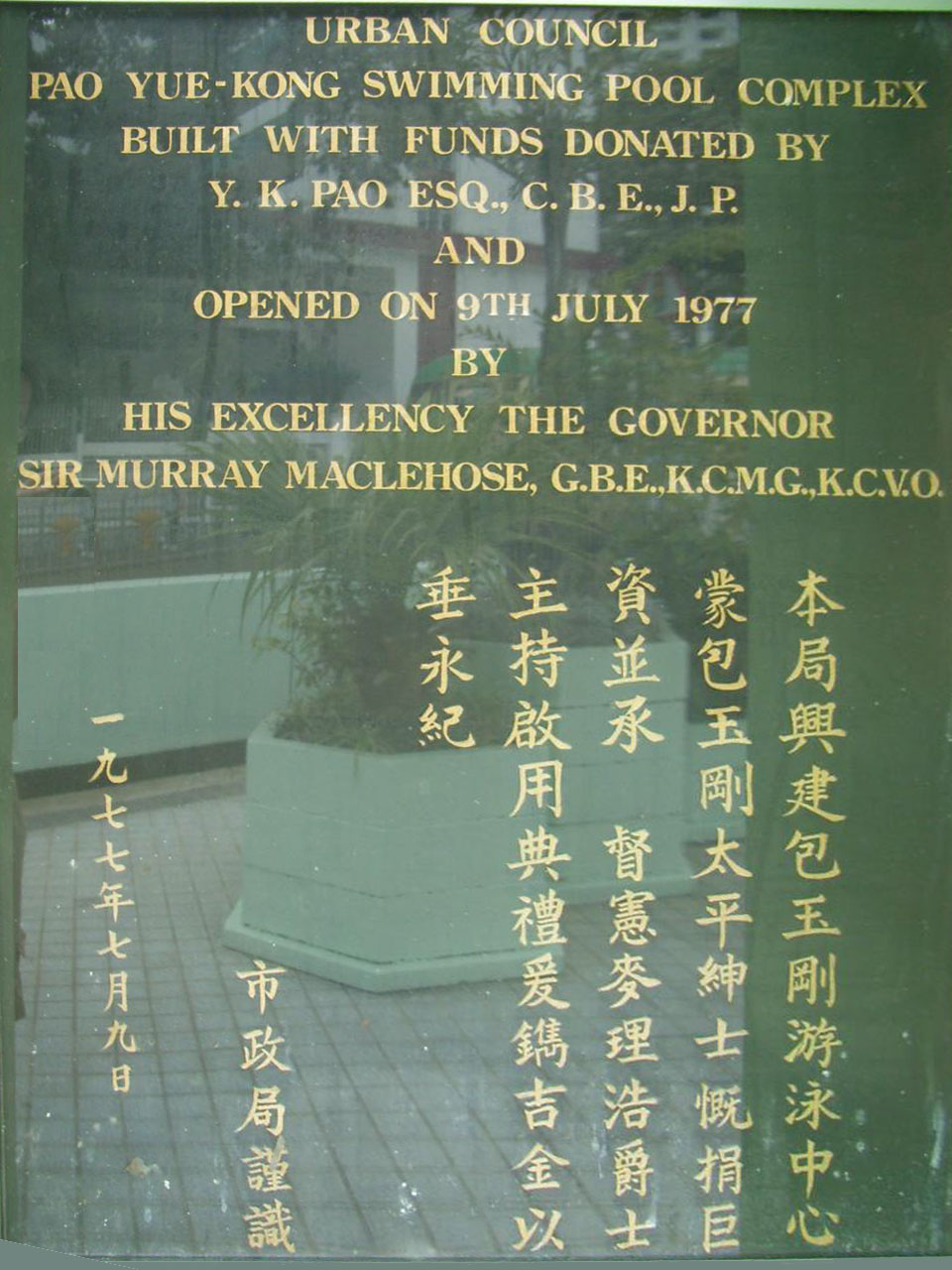|
Resettlement Department
The Resettlement Department () was a department of the Government of Hong Kong, responsible for constructing resettlement estates for homeless refugees, established in 1954. In 1973, the Resettlement Department and the Building Section of the Urban Services Department were merged to form the Housing Department, which acts as the Housing Authority's executive body. History In December 1953, a major fire destroyed the slum area in Shek Kip Mei and more than 50,000 refugees from Mainland China were made homeless. After the disaster, then Governor Sir Alexander Grantham ordered Ronald Holmes to establish the Resettlement Department and appointed him as the Deputy Colonial Secretary and the first Commissioner of Resettlement. The Resettlement Department was formed from sections of the Public Works Department, the Social Welfare Department, and the Urban Services Department. The development of public housing marked a radical shift from the laissez-faire philosophy of the Governmen ... [...More Info...] [...Related Items...] OR: [Wikipedia] [Google] [Baidu] |
Public Works Department ...
This list indicates government departments in various countries dedicated to public works or infrastructure. See also * Public works * Ministry or Board of Public Works, the imperial Chinese ministry overseeing public projects from the Tang dynasty to the Qing * Ministry of Works (other) {{Types of government ministers Public works Public works are a broad category of infrastructure projects, financed and constructed by the government, for recreational, employment, and health and safety uses in the greater community. They include public buildings ( municipal buildings, sc ... [...More Info...] [...Related Items...] OR: [Wikipedia] [Google] [Baidu] |
Housing, Theory And Society
''Housing, Theory and Society'' is a quarterly peer-reviewed academic journal covering the fields of housing studies, social theory and social policy. The editor-in-chief is Hannu Ruonavaara (University of Turku) and it is published by Routledge. It was established in 1984 as ''Scandinavian Housing and Planning Research'', obtaining its current name in 1999. According to the ''Journal Citation Reports'', the journal has a 2018 impact factor The impact factor (IF) or journal impact factor (JIF) of an academic journal is a scientometric index calculated by Clarivate that reflects the yearly mean number of citations of articles published in the last two years in a given journal, as i ... of 2.317. References External links * Routledge academic journals English-language journals Academic journals established in 1984 Quarterly journals Urban studies and planning journals {{Planning-journal-stub ... [...More Info...] [...Related Items...] OR: [Wikipedia] [Google] [Baidu] |
Sir Murray MacLehose
Crawford Murray MacLehose, Baron MacLehose of Beoch, (; 16 October 1917 – 27 May 2000), was a British politician, diplomat and the 25th Governor of Hong Kong, from 1971 to 1982. He was the longest-serving governor of the colony, with four successive terms in office. Early life and career Murray MacLehose was born in Glasgow, Scotland in October 1917 as the second child of Hamish Alexander MacLehose and Margaret Bruce Black. He attended Rugby School in 1931 and Balliol College, Oxford. During World War II, while under the cover of being the British vice-consul, MacLehose trained Chinese guerrillas to operate behind Japanese lines to carry out sabotage. MacLehose was principal private secretary to Foreign Secretary George Brown in the late 1960s. His career almost stalled when he left a copy of a confidential telegram in a bank in 1967. The document contained correspondences' between then British Prime Minister Harold Wilson and US President Lyndon Johnson concerning th ... [...More Info...] [...Related Items...] OR: [Wikipedia] [Google] [Baidu] |
Arthur Walton
Arthur is a common male given name of Brythonic origin. Its popularity derives from it being the name of the legendary hero King Arthur. The etymology is disputed. It may derive from the Celtic ''Artos'' meaning “Bear”. Another theory, more widely believed, is that the name is derived from the Roman clan '' Artorius'' who lived in Roman Britain for centuries. A common spelling variant used in many Slavic, Romance, and Germanic languages is Artur. In Spanish and Italian it is Arturo. Etymology The earliest datable attestation of the name Arthur is in the early 9th century Welsh-Latin text ''Historia Brittonum'', where it refers to a circa 5th to 6th-century Briton general who fought against the invading Saxons, and who later gave rise to the famous King Arthur of medieval legend and literature. A possible earlier mention of the same man is to be found in the epic Welsh poem ''Y Gododdin'' by Aneirin, which some scholars assign to the late 6th century, though this is still a mat ... [...More Info...] [...Related Items...] OR: [Wikipedia] [Google] [Baidu] |
Urban Council (Hong Kong)
The Urban Council (UrbCo) was a municipal council in Hong Kong responsible for municipal services on Hong Kong Island and in Kowloon (including New Kowloon). These services were provided by the council's executive arm, the Urban Services Department. Later, the equivalent body for the New Territories was the Regional Council. The council was founded as the Sanitary Board in 1883. It was renamed the Urban Council when new legislation was passed in 1936 expanding its mandate. In 1973 the council was reorganised under non-government control and became financially autonomous. Originally composed mainly of ''ex-officio'' and appointed members, by the time the Urban Council was disbanded following the Handover it was composed entirely of members elected by universal suffrage. History The Urban Council was first established as the Sanitary Board in 1883. In 1887, a system of partial elections was established, allowing selected individuals to vote for members of the Board. On 1 ... [...More Info...] [...Related Items...] OR: [Wikipedia] [Google] [Baidu] |
Harold Giles Richards
Harold may refer to: People * Harold (given name), including a list of persons and fictional characters with the name * Harold (surname), surname in the English language * András Arató, known in meme culture as "Hide the Pain Harold" Arts and entertainment * ''Harold'' (film), a 2008 comedy film * ''Harold'', an 1876 poem by Alfred, Lord Tennyson * ''Harold, the Last of the Saxons'', an 1848 book by Edward Bulwer-Lytton, 1st Baron Lytton * ''Harold or the Norman Conquest'', an opera by Frederic Cowen * ''Harold'', an 1885 opera by Eduard Nápravník * Harold, a character from the cartoon ''The Grim Adventures of Billy & Mandy'' *Harold & Kumar, a US movie; Harold/Harry is the main actor in the show. Places ;In the United States * Alpine, Los Angeles County, California, an erstwhile settlement that was also known as Harold * Harold, Florida, an unincorporated community * Harold, Kentucky, an unincorporated community * Harold, Missouri, an unincorporated community ;E ... [...More Info...] [...Related Items...] OR: [Wikipedia] [Google] [Baidu] |
Tai Hang Tung Estate
Tai Hang Tung Estate () is a public housing estate in Kowloon Tong, Sham Shui Po District, Kowloon, Hong Kong, located near the Tai Hang Sai and Nam Shan Estates as well as Shek Kip Mei station. The Tai Hang Tung Estate was a resettlement estate built by the British Hong Kong government in 1955, after a fire broke out the squatter area in Tai Hang Tung in 1952. The estate started redevelopment and rehabilitation in the 1970s. The first batch of redeveloped buildings were constructed in 1983 and 1986 respectively. The last four old blocks, Tung Fu House, Tung Wing House, Tung Wan House and Tung Wo House, were demolished in 2003. Two buildings in Redevelopment Phase 1, Tung Kin House and Tung Yi House, were built in 2002. Houses Demographics According to the 2016 by-census, Tai Hang Tung Estate had a population of 4,562. The median age was 51.2 and the majority of residents (96.8 per cent) were of Chinese ethnicity. The average household size was 2.3 people. The median monthly ... [...More Info...] [...Related Items...] OR: [Wikipedia] [Google] [Baidu] |
Shek Kip Mei Estate
Shek Kip Mei Estate is the first public housing estate in Hong Kong. It is located in Sham Shui Po and is under the management of the Hong Kong Housing Authority. The estate was constructed as a result of a fire in Shek Kip Mei in 1953, to settle the families of inhabitants in the squats over the hill who lost their homes in one night. Originally constructed in 1953 to alleviate the immediate housing needs, the units in this "Mark I" estate were utilitarian. Redevelopment of the estate commenced in 1972, with new towers coming on stream between 1979 and 1982. Site 1 of redevelopment was occupied in 2007. The estate now consists of 21 residential blocks, containing 10,800 rental flats. The estate has an authorised capacity of 26,400. History Following the Second World War, a large number of migrants from the mainland arrived in Hong Kong. Due to the lack of housing policy, and thus non-availability of affordable housing, the migrants lived illegally in wooden shanties in ... [...More Info...] [...Related Items...] OR: [Wikipedia] [Google] [Baidu] |
Laissez-faire
''Laissez-faire'' ( ; from french: laissez faire , ) is an economic system in which transactions between private groups of people are free from any form of economic interventionism (such as subsidies) deriving from special interest groups. As a system of thought, ''laissez-faire'' rests on the following axioms: "the individual is the basic unit in society, i.e. the standard of measurement in social calculus; the individual has a natural right to freedom; and the physical order of nature is a harmonious and self-regulating system." Another basic principle of ''laissez-faire'' holds that markets should naturally be competitive, a rule that the early advocates of ''laissez-faire'' always emphasized. With the aims of maximizing freedom by allowing markets to self-regulate, early advocates of ''laissez-faire'' proposed a ''impôt unique'', a tax on land rent (similar to Georgism) to replace all taxes that they saw as damaging welfare by penalizing production. Proponents of ''l ... [...More Info...] [...Related Items...] OR: [Wikipedia] [Google] [Baidu] |
The Standard (Hong Kong)
''The Standard'' is an English-language free newspaper in Hong Kong with a daily circulation of 200,450 in 2012. It was formerly called the ''Hongkong Standard'' and changed to ''HKiMail'' during the Internet boom but partially reverted to ''The Standard'' in 2001. The ''South China Morning Post'' (SCMP) is its main local competitor. Format ''The Standard'' is printed in tabloid format rather than in broadsheet. It is published daily from Monday to Friday. Ownership ''The Standard'' was published by Hong Kong iMail Newspapers Limited as of 2001 (previously known as Hong Kong Standard Newspapers Limited) but currently The Standard Newspapers Publishing Limited. These enterprises are owned by Sing Tao News Corporation Limited, also the publisher of '' Sing Tao Daily'' and ''Headline Daily''; the firm also has other businesses including media publications, ''The Standard'' was previously owned by Sally Aw's Sing Tao Holdings Limited. Aw is the daughter of the founder Aw Boo ... [...More Info...] [...Related Items...] OR: [Wikipedia] [Google] [Baidu] |
Social Welfare Department
The Social Welfare Department () is a department of the Hong Kong Government responsible for providing welfare services to the community. Responsibilities The department provides services to families and children, the elderly, recovering criminal offenders, drug abusers, street sleepers, persons with disabilities, the mentally ill, and the community at large. It administers social security schemes, including the Comprehensive Social Security Assistance, which forms a large portion of its annual expenses. The department operates community and social centres, and also once operated libraries. History The forerunner of the SWD was the Social Welfare Office, which was set up in light of the influx of population from the mainland China, post-World War II destruction and poverty, and the post-war expansion in the provision of services to meet education, healthcare and social needs. The Social Welfare Office was renamed Social Welfare Department from 1 January 1958. At the same time ... [...More Info...] [...Related Items...] OR: [Wikipedia] [Google] [Baidu] |




.jpg)
